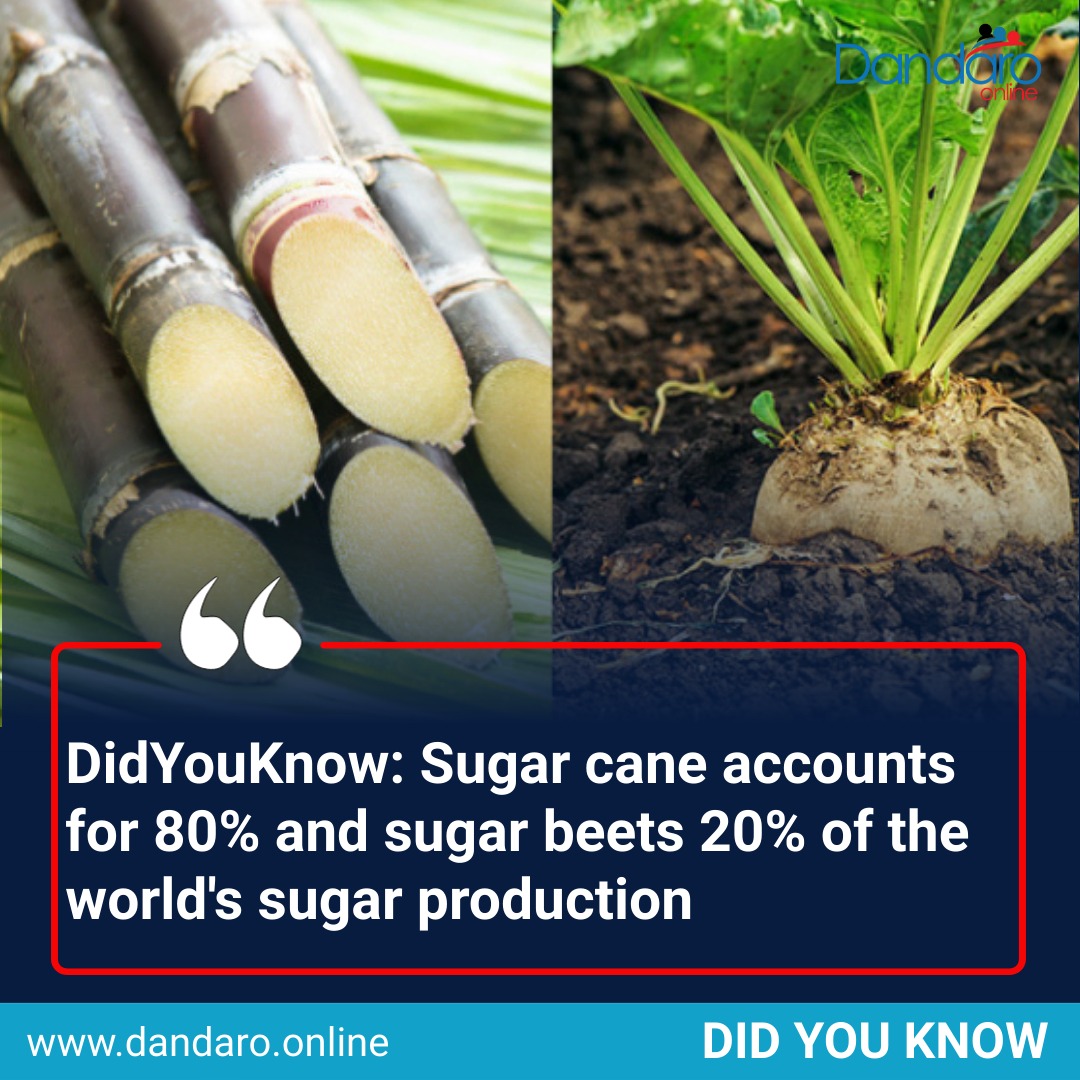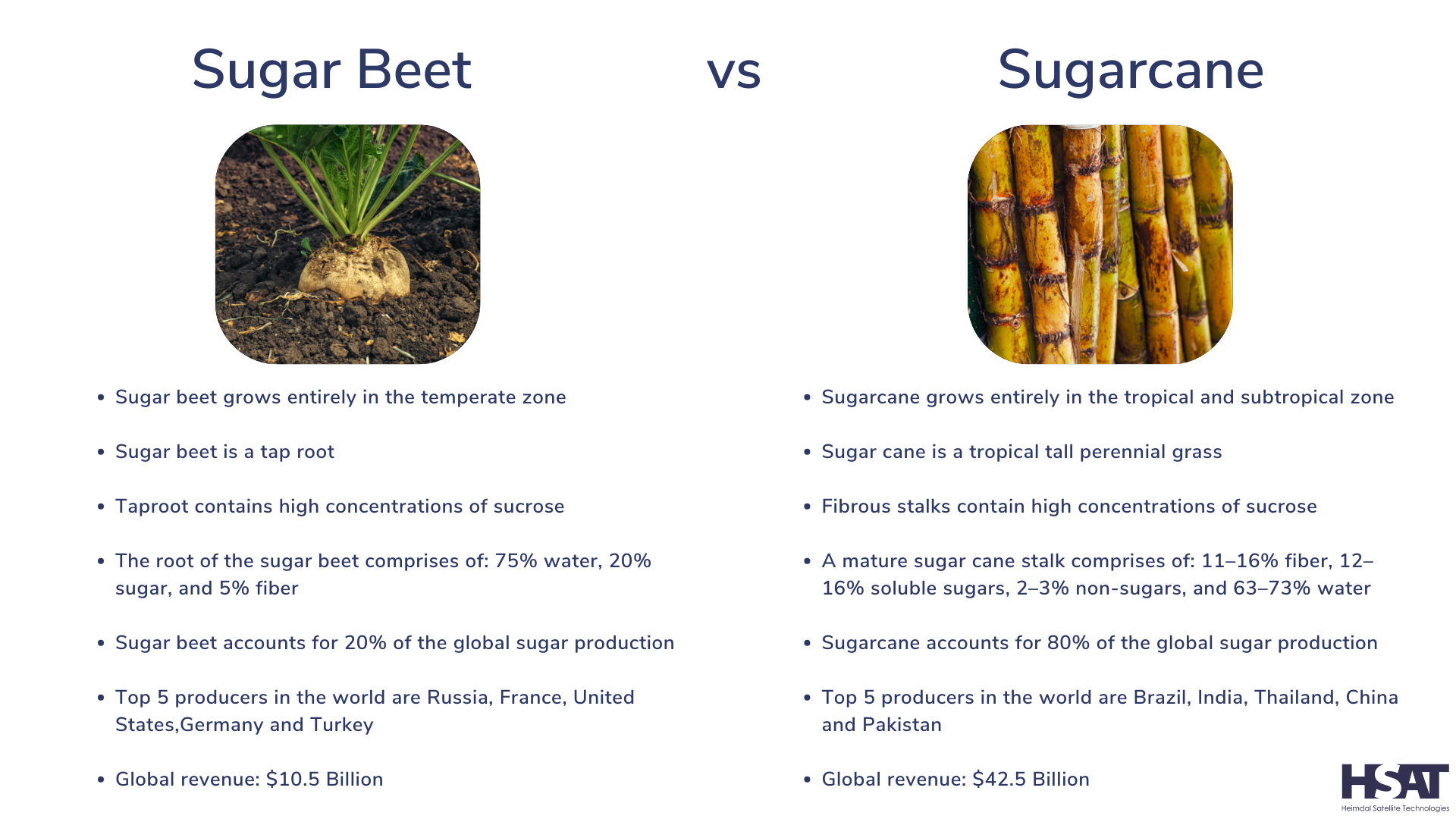Beet Sugar vs Cane: Exploring the Pros and Cons of Each Sweetener
Beet Sugar vs Cane: Exploring the Pros and Cons of Each Sweetener
Blog Article
Discovering Beet Sugar Vs Cane: Nutritional Conveniences and Culinary Utilizes
The comparison between beetroot sugar and cane sugar prolongs past mere taste and structure, revealing detailed dietary accounts and culinary applications that warrant cautious evaluation. While both sugars share a typical foundation in sucrose, their distinct characteristics can affect not just health and wellness factors to consider yet also the results of different recipes. Comprehending these differences can assist in making informed options for both dietary demands and cooking choices. As we explore the nuances of these 2 sugars, it ends up being clear that the implications of their use are a lot more profound than one could at first assume.
Summary of Beetroot Sugar
Although both beetroot sugar and walking cane sugar serve comparable functions in culinary applications, beetroot sugar is obtained particularly from the sugar beet plant (Beta vulgaris), a root vegetable cultivated in warm environments. This process begins with the harvesting of sugar beets, which are after that washed, sliced, and based on extraction techniques to generate sugar-rich juice (beet sugar vs cane). The juice undergoes filtration and condensation, leading to the granulated sugar frequently made use of in houses and sectors
Nutritionally, beetroot sugar is chemically the same to walking cane sugar, both mainly containing sucrose. Beetroot sugar production tends to have a reduced ecological impact, as sugar beets need less water and can be grown in diverse farming problems. In addition, the growing of sugar beetroots can add to plant rotation techniques, enhancing soil health.
Beet sugar often has trace amounts of minerals and vitamins, including calcium and potassium, although these are negligible in common intake. In food preparation and cooking, beetroot sugar executes equivalently to its walking stick equivalent, making it a flexible sweetener. Its neutral taste profile enables it to be effortlessly integrated into different recipes without changing the designated preference of the end product.
Summary of Cane Sugar
Walking cane sugar, acquired from the sugarcane plant (Saccharum officinarum), makes up roughly 70% of global sugar manufacturing. This functional sugar is grown in exotic and subtropical regions, with significant manufacturers including Brazil, India, and China. The removal procedure entails crushing the sugarcane stalks to release the juice, which is after that cleared up, vaporized, and taken shape to generate raw cane sugar.
Walking cane sugar is characterized by its fine, white granules and is commonly located in both granulated and powdered forms. Its taste account is commonly described as pleasant and tidy, making it ideal for a vast array of culinary applications, from baking and preparing to sweetening beverages.
In enhancement to its culinary usages, cane sugar likewise offers as a chemical in jams and jellies, as well as a fermentation representative in the manufacturing of liquors. The sugar is typically refined right into various items, including molasses, brownish sugar, and liquid sugar, each offering special features that can enhance various recipes. On the whole, walking stick sugar remains a standard component in cooking areas around the world, underscoring its value in both culinary customs and contemporary gastronomy.
Nutritional Comparison
When contrasting beet sugar and walking cane sugar, it is necessary to analyze their dietary accounts to recognize their influence on health and wellness. Both kinds of sugar are mainly made up of sucrose, which is a disaccharide made up of glucose and fructose. This suggests that, in regards to caloric material, they are nearly similar, giving about 16 calories per teaspoon.
Nevertheless, there are subtle differences in their processing and mineral content. Beetroot sugar is frequently refined using bone char, which may not be ideal for vegetarians and vegans, while cane sugar can be a lot more straightforwardly fine-tuned. In terms of trace minerals, walking stick sugar might keep somewhat much more calcium, magnesium, and potassium because of much less substantial handling, though these amounts are negligible contrasted to daily advised consumption.
Moreover, both sugars add to the exact same health threats when eaten in extreme amounts, such as weight problems, kind 2 diabetic issues, and oral issues. Inevitably, the choice in between beetroot and walking cane sugar might pivot more on personal preference or nutritional constraints rather than considerable distinctions in dietary value. Understanding these nuances can help customers in making notified dietary choices.

Culinary Uses of Beetroot Sugar
Beet sugar, a functional sweetener originated from sugar beets, discovers countless applications more in cooking practices - beet sugar vs cane. Its improved crystals dissolve conveniently, making it a perfect component for cooking, cooking, and drink preparation. In the realm of cooking, beetroot sugar adds to moisture retention and browning, enhancing the structure and flavor of cookies, pastries, and cakes
Additionally, click this link its neutral taste account allows it to mix flawlessly into different dishes without overpowering various other components, making it suitable for both full-flavored and wonderful dishes. Beet sugar can additionally be employed in sauces, marinates, and dressings, where it balances level of acidity and enhances the total preference.
In drinks, beetroot sugar is typically used to sweeten tea, coffee, and alcoholic drinks, offering a regular sweet taste that complements varied taste accounts (beet sugar vs cane). In addition, it works as a chemical in jams and jellies, ensuring a secure product with enhanced life span
Culinary Utilizes of Walking Cane Sugar
Sweetness is a basic facet of numerous cooking productions, and cane sugar plays a vital function in attaining that balance. Its special chemical composition enables it to dissolve conveniently, making it perfect for a selection of applications, from baking to beverages. Cane sugar boosts flavors in desserts, offering the sweet taste essential for breads, cakes, and cookies. It not only adds to taste yet also affects structure; for instance, it assists in wetness retention, resulting in softer baked items.
In savory meals, cane sugar can stabilize level of acidity and anger, improving the general taste account. It is commonly utilized in sauces and sauces, where it assists to produce a harmonious blend of sweet, salted, and umami notes. In addition, cane sugar is a crucial ingredient in visit the site preserving fruits, as it acts as a natural chemical, inhibiting microbial growth.
In beverages, walking cane sugar is frequently preferred for sweetening teas, cocktails, and soft drinks, enabling a clean, pure sweetness. Its convenience makes it a staple in both home cooking areas and specialist culinary setups, showcasing its value in achieving cooking excellence.
Final Thought

The comparison between beet sugar and walking cane sugar prolongs beyond mere preference and texture, revealing detailed dietary profiles and culinary applications that merit careful evaluation.Although both beet sugar and walking cane sugar offer similar features in cooking applications, beetroot sugar is obtained specifically from the sugar beetroot plant (Beta vulgaris), an origin vegetable grown in pleasant climates. Beetroot sugar manufacturing tends to have a reduced environmental effect, as sugar beetroots call for much less water and can be expanded in varied agricultural conditions. The sugar is often refined into numerous items, consisting of molasses, brown sugar, and fluid sugar, each offering distinct characteristics that can improve various recipes.Beet sugar, a versatile sugar obtained from sugar beets, locates various applications in culinary practices.
Report this page